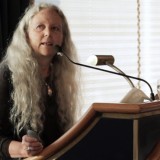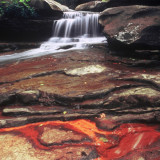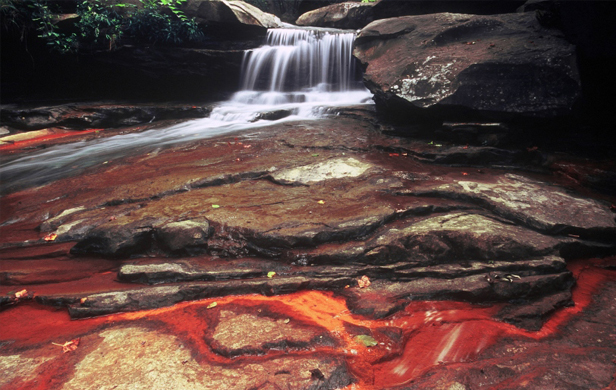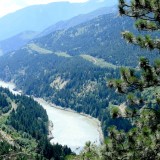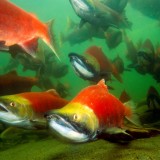Today is a day of perplexity.
I’m perplexed at a notice I received asking me to join a protest against a proposed Liquefied Natural Gas (LNG) pipeline near Smithers. This line is designed to transport northeast BC natural gas from a junction point at Summit Lake, north of Prince George, to Kitimat for processing into LNG so it can be shipped to Asian markets. It has flown largely beneath the radar, perhaps because the NDP Opposition haven’t opposed it.
What are the risks posed? Are we talking wildlife migration paths? Do spills pose a threat? Who is doing it and what sort of approvals do they require? When was the application? Were there public meetings, and if so where and what was the reaction?
I’m perplexed at the provincial government’s apparent imminent approval of a new fish farm in Clayoquot Sound. How can this possibly be done before the Cohen Commission report comes out? Has no one in that catastrophic government in Victoria read the recent and growing evidence of serious disease endemic to fish farms? It strikes me that approving a fish farm before Mr Justice Cohen issues his report is like Israel building houses on conquered land – an effort to create faits accompli on the theory that once approved, it will be difficult to dismantle them.
This government is not only incompetent – we can recover from that – but without a conscience or a soul, without the ability to know right from wrong.
I’m perplexed at the flip in the recent opinion column by the Vancouver Sun’s Barbara Yaffe on the proposed Enbridge pipeline. Several weeks ago, after months of approving the proposition, Barbara concluded, on the evidence that had recently come out on the company’s disastrous spill in the Kalamazoo River, that it was unsafe to build the line.
Today (July 31) she’s talking about the parties sitting down and negotiating about money to be paid to BC.
In the Vancouver Sun, same edition, Craig McInnes, who’s bringing some common sense to that paper, makes the obvious but little stated observation that with the Enbridge pipeline: “A, there is a risk and B, we are willing to accept the risk of a catastrophic spill if we get paid enough.”
He goes on to say, “As a Canadian who treasures our physical environment regardless of where the political boundaries lie, I find that equation to be unacceptable.”
Amen.
Then I’m perplexed with former federal Environment Minister David Anderson’s approval of Premier Clark demanding more money for a project Anderson has just stated his unchangeable opposition to.
Mr. Anderson, I know you don’t like me from another movie, but please take my advice and read Mr. McInnes’ column referred to above.
I’m perplexed that no one seems to care about Kinder Morgan’s proposed massive increase to pipeline volumes and tanker traffic through Vancouver in environmental terms.
I’m also perplexed that Premier Clark isn’t also claiming a greater share of the revenue from the Kinder Morgan lines, existing and, if approved, future lines.
I will be dealing with Clark’s position in next Monday’s TheTyee.ca but suffice it to say that in Canada we have free passage of goods and resources through neighbouring provinces. Ms. Clark evidently, to add to the sum of her massive ignorance, doesn’t understand that and fails to put herself in Alberta Premier Redford’s shoes and fails to ask what she, Clark, would do if Alberta demanded a share of BC royalties and stumpage on our resources in exchange for passage through Alberta.
In the non-perplexed department I commend Grand Chief Stewart Phillip’s clear and unequivocal stand against Enbridge and his statement that First Nations will, if the project is approved, blockade it.
Frankly, I’m perplexed that we’re still debating these issues and that our governments haven’t put an end to them, once and for all.


